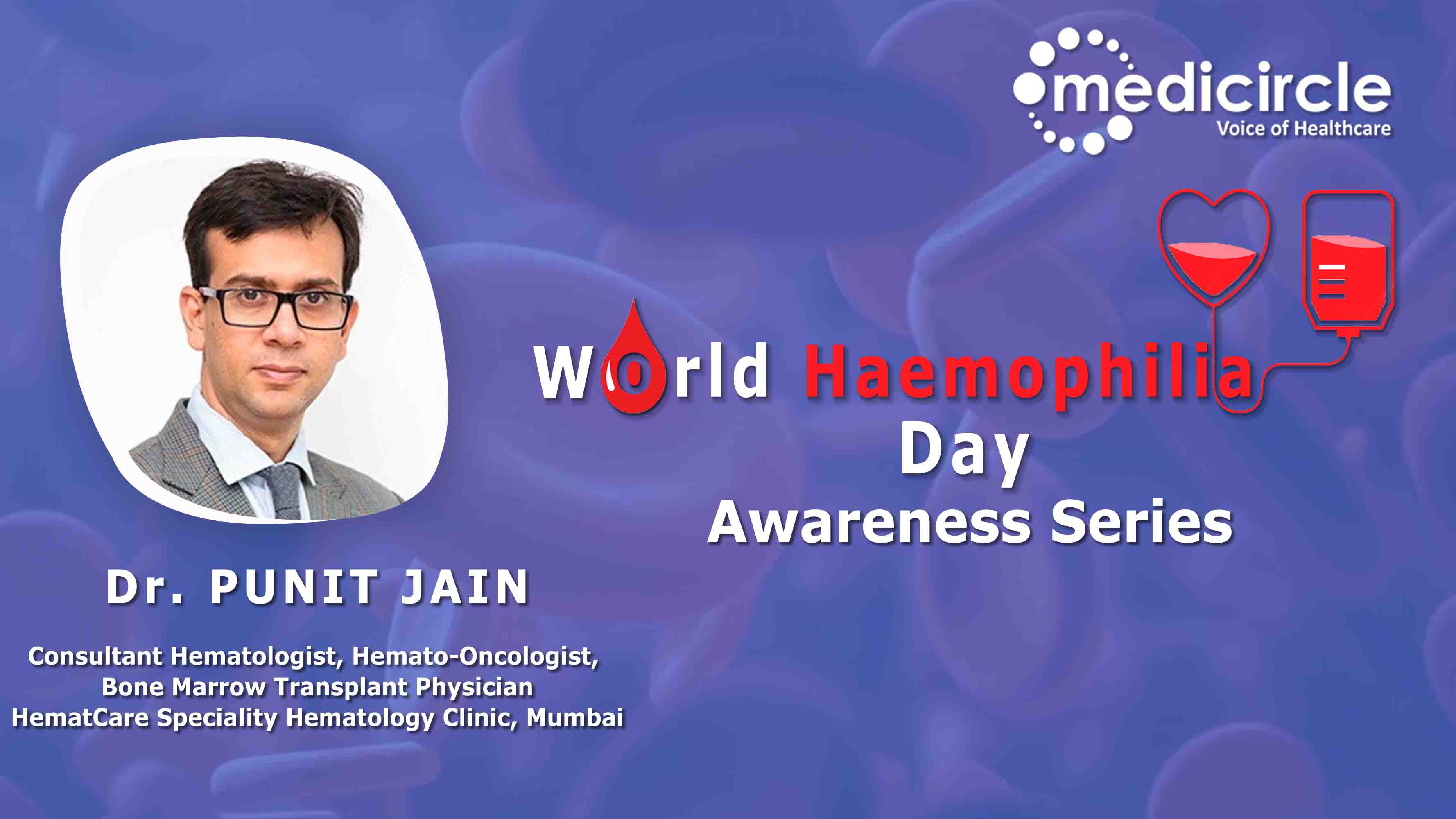Haemophilia is a medical condition in which the ability of the blood to clot is severely reduced, causing the sufferer to bleed profusely from even a slight injury. On the occasion of World Haemophilia Day, which falls in the month of April, Medicircle is conducting an exclusive series featuring eminent hematologists to spread awareness about this rare medical condition.
Dr. Punit Jain is an experienced Consultant Hematologist, Hemato-Oncologist, Program Coordinator & Bone Marrow Transplant Physician with a demonstrated history of working in the hospital and healthcare industry. He has completed his speciality training in Clinical Hematology and Bone Marrow Transplant from the Christian Medical College Vellore. He has also undergone advanced training in the management of leukemias and hematological malignancies from MD Anderson Cancer Center USA. He is currently associated with Apollo Hospitals, Navi Mumbai and HematCare, Powai.
Haemophilia is a sex-linked disease
Dr. Punit explains, “Haemophilia is a spectrum of a lot of bleeding disorders, a tendency where a normal human being starts to bleed profusely, uncontrollably, and sometimes even fatally. It's a disease that is sex-linked wherein a female can become a carrier. They may not manifest, but a man can have that gene and become a patient. One can suffer from mild haemophilia, moderate haemophilia, and severe haemophilia depending on the amount of protein that is there in the blood. The protein is required for normal clotting in the blood. Imagine a situation where that protein is not there in your body! So, any cut one gets or any injury that one gets, he might have profuse bleeding and that can happen repeatedly and can cause a lot of problems,” says Dr. Punit.
Proper haematology team can handle you if you are diagnosed with haemophilia
Dr. Punit emphasizes, “Most important is the right diagnosis. Normally, patients who are diagnosed with severe haemophilia are diagnosed very early. In general, very small children start to have prolonged bleeding in the teeth or prolonged bleeding even with a small cut or small surgery. So, when one gets diagnosed, one needs to consult haematologists. A physician or pediatrician can guide you but you need a proper haematology team handling you if you are diagnosed with haemophilia.”
We are a long way from a complete cure but haemophilia patients can undergo major surgeries under good supervision.
Dr. Punit mentions, “Now we are a long way from a complete cure. Complete cure is gene therapy, it's coming but it's going to take some time. There are trials as of now that are taking place but there are treatments available in terms of prophylaxis - replacement of those proteins with what we call factors. So, if there is Haemophilia A, we replace factor eight (VIII). If it's Haemophilia B, we replace factor nine (IX). Those are very costly drugs, but it is available to control one event.
So, in the current scenario, it is a manageable situation provided you have a good treating team. There is a Haemophilia society. If you are a part of it, if you are well connected, if there are the availability of factors, it’s manageable. Patients with hemophilia can undergo major surgeries under good supervision.
I can say that haemophilia and the event of bleeding are manageable in the right environment. You need to stay connected and keep meeting your doctor. 1 in 15,000 patients suffer from it. It's really rare,” says Dr. Punit.
You may get in touch with Dr. Punit Jain at:
HematCare - Speciality Hematology Clinic, Powai
Email - [email protected]
Website - www.hematcare.in
For Appointments - (+91) 9892699680
(Edited by Amrita Priya)

 Patients with Haemophilia can undergo major surgeries under good supervision. Haemophilia and the event of bleeding are manageable in the right environment. It's a manageable condition if there is a good treating team – Dr. Punit Jain
Patients with Haemophilia can undergo major surgeries under good supervision. Haemophilia and the event of bleeding are manageable in the right environment. It's a manageable condition if there is a good treating team – Dr. Punit Jain










.jpeg)

















.jpg)


